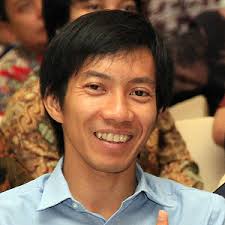Malaysia's Sustainable Future: Navigating Industry 4.0 through a Low-Carbon Agenda
https://doi.org/10.62157/ijietom.v1i2.28
Keywords:
Low carbon, Carbon emissions reduction, Industry revolution 4.0, Industry 4.0, Malaysia contextAbstract
The evolving technological landscape has transformed the business realm, compelling companies to navigate a dynamic environment and embrace innovation to maintain competitiveness. One of the most recent trends in this pursuit is the Industrial Revolution or Industry 4.0 (IR 4.0). Industry 4.0 has been widely discussed as a means of providing greater advantages for countries and firms. However, the shift to automation and data-driven decisions of IR 4.0 is still slow, especially in developing countries like Malaysia. Throughout the world, IR 4.0 is still in policy development, and the literature shows that IR 4.0 is still in the conceptual stage. As IR 4.0 is inevitable, countries like Malaysia must start gearing toward readiness. This must be done without impacting the environment, such as by increasing carbon emissions. In order to do that, this paper has investigated the challenges, impact, issues, enforcement and risk minimization of IR 4.0 without sacrificing low carbon performance among Malaysian firms. The review of current literature and whitepapers found that Malaysia is still creating awareness for IR 4.0, and policymakers are still developing IR 4.0. This paper has proposed future research that will gear Malaysia to establish an IR 4.0 readiness framework and provide empirical evidence from the industry.
References
Ardito, L., Petruzzelli, A. M., Panniello, U., & Garavelli, A. C. (2018). Towards Industry 4.0: Mapping digital technologies for supply chain management-marketing integration. Business Process Management Journal, 25(2), 323–346.
Awad, A., Yussof, I., & Khalid, N. (2018). Output growth of the Malaysia’s manufacturing sector–do foreign workers matter? Journal of Economic Studies, 45(4), 876–895.
Baur, C., & Wee, D. (2015). Manufacturing’s next act. McKinsey & Company, 6, 1–5.
Bernama. (2017). Najib: Japan Helping Malaysia Prepare for Industrial Revolution 4.0. Bernama Business News.
Bhunia, P. (2017). Slew of measures in Malaysian Budget 2018 directed towards fourth industrial revolution and digital economy.
Fernando, Y., Jasmi, M. F. A., & Shaharudin, M. S. (2019). Maritime green supply chain management: Its light and shadow on the bottom line dimensions of sustainable business performance. International Journal of Shipping and Transport Logistics, 11(1), 60–93.
Fernando, Y., Shaharudin, M. S., Ismail, I., Yew, S. Q., & Ganesan, Y. (2018). A Mediating Model of Resource Commitment, Reverse Logistics and Financial Performance: Importance-Performance Map Analysis. In 8th International Borneo Business Conference (pp. 20–30).
Fernando, Y., Wah, W. X., & Shaharudin, M. S. (2016). Does a firm’s innovation category matter in practising eco-innovation? Evidence from the lens of Malaysia companies practicing green technology. Journal of Manufacturing Technology Management, 27(2), 208–233.
Gunasekaran, A., Subramanian, N., & Ngai, W. T. E. (2019). Quality management in the 21st century enterprises: Research pathway towards Industry 4.0. International Journal of Production Economics. Elsevier.
Hermann, M., Pentek, T., & Otto, B. (2016). Design principles for industrie 4.0 scenarios. In 2016 49th Hawaii international conference on system sciences (HICSS) (pp. 3928–3937). IEEE.
Human Resources Development Fund. (2018). HRDF National Workforce Human Capital Development Blueprint.
Javaid, M., Haleem, A., Singh, R. P., Rab, S., Suman, R., & Khan, S. (2022). Exploring relationships between Lean 4.0 and manufacturing industry. Industrial Robot: The International Journal of Robotics Research and Application, 49(3), 402–414.
Kagermann, H., Helbig, J., Hellinger, A., & Wahlster, W. (2013). Recommendations for implementing the strategic initiative INDUSTRIE 4.0: Securing the future of German manufacturing industry; final report of the Industrie 4.0 Working Group. Forschungsunion.
Klingenberg, C. O., Borges, M. A. V., & Antunes Jr, J. A. V. (2019). Industry 4.0 as a data-driven paradigm: a systematic literature review on technologies. Journal of Manufacturing Technology Management, 32(3), 570–592.
Kwak, S.-Y., & Kim, M.-J. (2018). A Study on the Analysis of International Trade Competitiveness between Korea and Vietnam. Trade Information Research, 20(3), 49–74.
Lee, J., Lapira, E., Bagheri, B., & Kao, H. (2013). Recent advances and trends in predictive manufacturing systems in big data environment. Manufacturing Letters, 1(1), 38–41.
Ministry of Investment Trade and Industry. (2018). Industry 4.0. Retrieved from https://www.miti.gov.my/index.php/pages/view/industry4.0?mid=559
Pandiyan, M. V. (2017). Industry 4.0: The future is here. Star publications.
Régnier, P., & Wild, P. (2016). Recent Trends in First-Class World Competitiveness: Singapore and Switzerland in Global Entrepreneurship Rankings. In Singapore and Switzerland: secrets to small state success (pp. 137–164). World scientific.
Schroeder, A., Ziaee Bigdeli, A., Galera Zarco, C., & Baines, T. (2019). Capturing the benefits of industry 4.0: a business network perspective. Production Planning & Control, 30(16), 1305–1321.
Schwab, K. (2017). The fourth industrial revolution. Crown Currency.
Shaharudin, M. S., & Fernando, Y. (2015). Low carbon footprint: The supply chain agenda in Malaysian manufacturing firms. In Promoting Sustainable Practices through Energy Engineering and Asset Management (pp. 324–347). IGI Global.
Shaharudin, M. S., & Fernando, Y. (2019). Measuring low carbon supply chain. In Advanced Methodologies and Technologies in Business Operations and Management (pp. 1105–1116). IGI Global.
Shanmugan, M., Shaharudin, M. S., Ganesan, Y., & Fernando, Y. (2019). Manufacturing Outsourcing to Achieve Organizational Performance through Manufacturing Integrity Capabilities. KnE Social Sciences, 858–871.
Sim, L.-L., Ong, S.-E., Agarwal, A., Parsa, A., & Keivani, R. (2003). Singapore’s competitiveness as a global city: Development strategy, institutions and business environment. Cities, 20(2), 115–127.
Sung, T. K. (2018). Industry 4.0: a Korea perspective. Technological Forecasting and Social Change, 132, 40–45.
World Economic Forum. (2016). Why should Malaysia focus on Industry 4.0? Retrieved from https://www.ekonomi.gov.my/sites/default/files/2021-07/National-4IR-Policy.pdf
Downloads
Published
How to Cite
Issue
Section
License
Copyright (c) 2023 Authors

This work is licensed under a Creative Commons Attribution 4.0 International License.




























